Cathy Freeman’s biggest regret as Stephanie Rice, Mack Horton, Michael Klim take DNA test
The gold medalist and Paris Olympics commentator has opened up about what her DNA test uncovered, as she and other Olympians delved into their results.
Olympics
Don't miss out on the headlines from Olympics. Followed categories will be added to My News.
Cathy Freeman has revealed her biggest regret as an Olympic champion was never running the 800m final after discovering her DNA revealed she is more likely to be an endurance runner, over a sprinter.
Freeman, who is one of four Olympians to have undertaken an AncestryDNA test, said she was not surprised to have seen the endurance trait emerge as one of her strengths.
“After retirement I realise now that I had a really big appetite for the 800m, so stepping to a two lap event up from a one lap event,” she said.
“I would have loved, loved, loved to have given the 800 metre a real crack.
“I kind of have regrets I would say a little bit and I have never come out and said that publicly at all before, but I can own it now because it’s in my DNA results.”
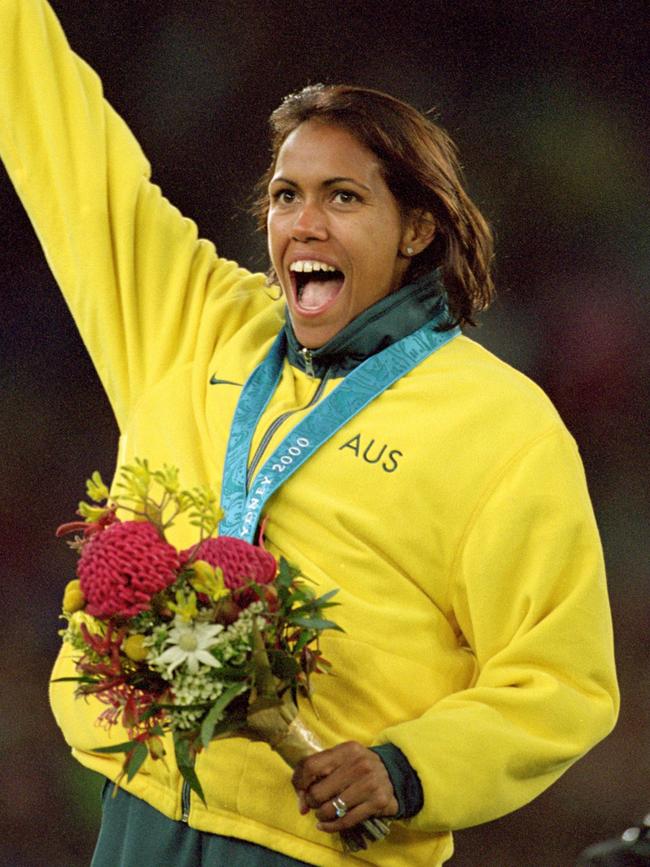
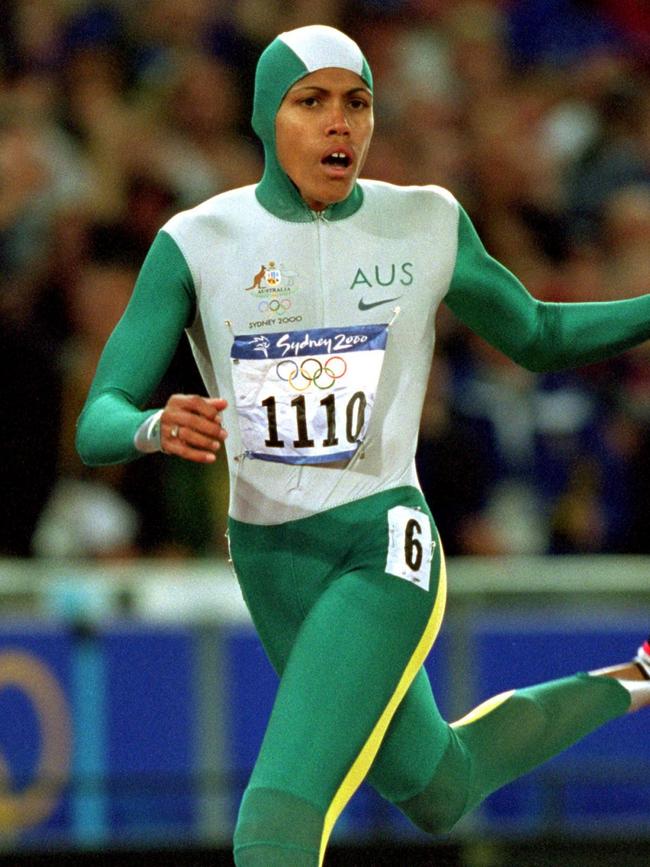
Freeman also found out she was not a natural goal setter or had good self discipline, which are both traits she had to learn from others who nurtured her career.
“Goal setting was something I was always shown and taught and encouraged to do. It was my stepfather at the age of 10 who encouraged me, for example, to write down on a piece of paper, ‘I am the world’s greatest athlete’. And I know I didn’t become the world’s greatest athlete. We all know that, but I still achieved my childhood dream of this gold medal,” she said.

Ancestry DNA Expert Jason Reeve said the test involves measuring and analysing “a person’s genome at over 700,000 locations”.
“It then looks at specific places in the DNA called markers. Scientists have found that some markers are associated with traits like red hair or attached earlobes,” he said.
“We analyse these markers and use them to share what a person’s DNA says about their traits.”
The markers revealed how they fared across a range of physical and mental traits, including level of competitiveness or drive, muscle strength, hand-eye coordination and speed.
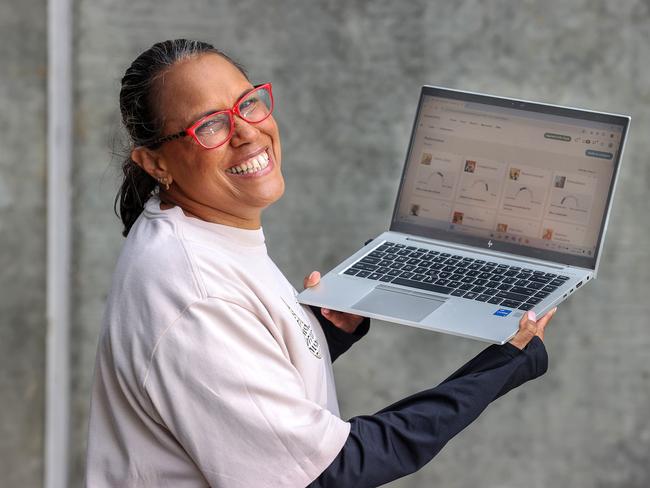
Stephanie Rice, who is a Paris Olympics commentator, also took the DNA test, which revealed like Freeman, she is competitive and more suited to individual sports — but is less likely to enjoy watching sport. She played sport instead as a child and was into cycling and hockey before swimming.
“I wonder because we were [both] so focused on sport that we didn’t really get into it [watching sport] from a hobby perspective, but in saying that there are so many athletes that just like are sports nuts and log watching sports,” Rice said.
“But if we were on a trivia team, Cathy Freeman and I, we would just be the most horrific of the team, because everyone’s expectation would be like ‘we’ve got Steph and Cathy they’ll know all the sports trivia’. But unless I was competing at the time, I would not have any idea.”
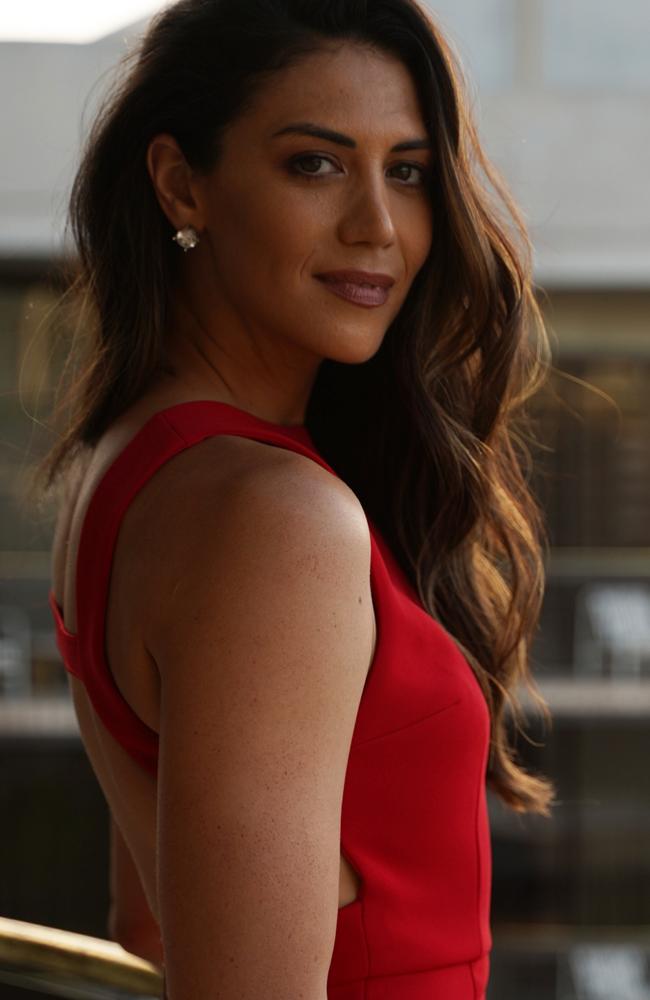
Her new partner, Australian church pastor and father of three Mark Lassey, had seen her results and laughed when it showed she was really competitive.
“It’s a no-brainer,” she said.
“I want to win, there’s a playfulness to it now … I’m not a great loser but I’ve gotten better at it!,” she laughed.
Rice and Freeman are also both risk averse and not natural leaders.
Like Freeman, Rice admits she was “super shy” when young.
“The risk taking one is really interesting because when it comes to surrendering and just seeing what’s possible I’m really happy to take big risk and try something new and step out of my comfort zone.
“But if it came to physical risk I’m totally risk averse so if it was heights or something a bit scary, that’s not me,” she said.
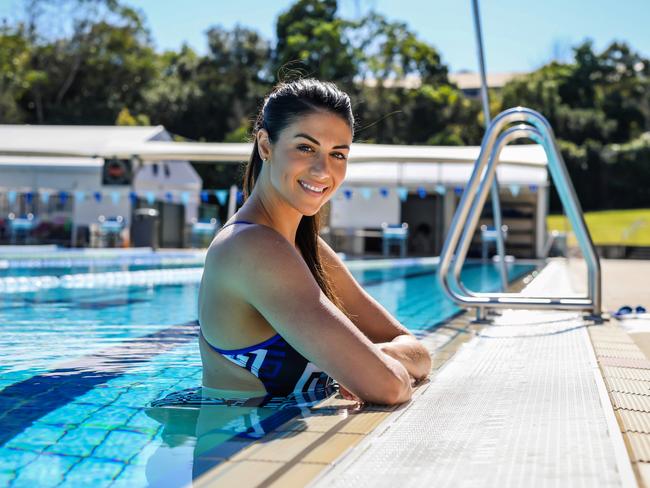
Rice said swimming helped her build self-confidence.
“I didn’t have very many friends at all in school and I struggled with bullying in primary school … swimming and my environment and competitiveness and feeling the confidence of being good at something trained me into being a leader.”
Rice, who has been on SAS Australia and moved to Dubai, also found confidence in doing an MBA last year despite being told at school she had poor grades and grammar.
She also disagreed with the DNA report which showed she scored low on some typical athletic traits, including physical strength.
“I wondered if I’ve out-trained some of the ones (personality traits) that were more specific to athletic ability,” she said.
“I think when it gets to that Olympic level the athletes that can handle the pressure, and the nerves and the mindset so that competitive desire to succeed, will to succeed really make a top athlete.”
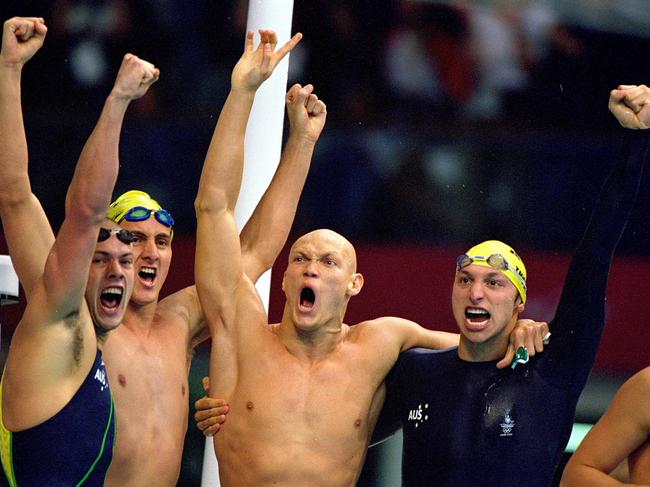
Retired Olympian Michael Klim also took the DNA test and found he was most surprised to discover his “athletic ability and flexibility were well below average”.
“However, my tolerance for pain, competitiveness, and determination made me realise that much of my sporting success was more environmental rather than purely talent-based,” Klim said.
“Swimming has been my passion for as long as I can remember, and it seems I was able to maximize the traits I was given.
“The DNA results reinforced that I was certainly in the right discipline, with sprinting and speed rated very high. Given that my hand-eye coordination ranked quite low, I can’t see myself pursuing other sporting endeavours.”

Retired freestyle swimmer Mack Horton said he was most surprised to find that he was less likely to be self-disciplined, but more likely to be determined.
“It is interesting to consider these traits and then also the role that swimming for over seventeen years would have played on who I have become,” he said.
“This has been interesting to ponder post-retirement as I work through what my ‘new state’ of self-discipline is outside of the routine that was a full-time training schedule.
“Another trait that was a surprise to me was that I’m unlikely to be able to hold my breath for long. This is quite funny considering the sport I chose but also validating as it is something I always struggled with throughout my swimming career.”
The AncestryDNA test has more than 30 new traits and Aussies learn about how their genetics may influence their athleticism. Fans can compare their DNA results to world-class athletes for a limited-time at Ancestry.com.AU/BringYourDNAGame.




